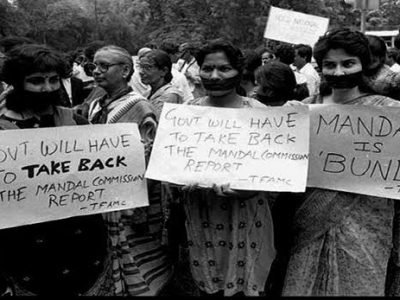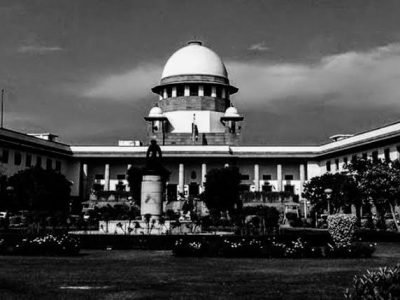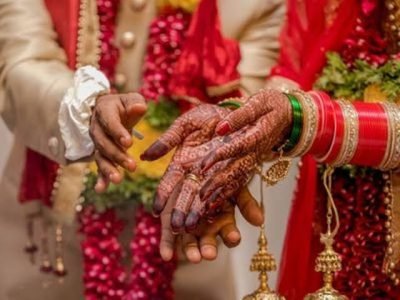Author: Varun Chaturvedi, Second-year Student of Chandigarh University, pursuing B.A. LL.B., Semester III.
INTRODUCTION:
One of the grounds on which the idea of which the matrimonial relief in divorce is often claimed is “Cruelty”. In layman’s language, cruelty implies violent behavior. In the legal world, the concept of cruelty is far wider. There is often the presence of cruelty even within the absence of any quite physical violence or causing of bodily hurt or any quite danger to the person. Mental cruelty is additionally recognized as cruelty in law.
Initially, Cruelty wasn’t applicable for Divorce and was considered as a ground just for legal separation under Section 10 of Hindu Marriage Act, 1955. By the amendment of 1964, it became possible to get a decree for divorce, 2 years after the decree of legal separation, if cohabitation wasn’t resumed during that period. By the amendment of 1976, the waiting period was reduced to 1 year. New Section 13 (1) (ia) was introduced to form “cruelty” a ground for divorce.
The word “Cruelty” has not been defined under the Hindu Marriage Act, as a result it’s susceptible to interpretation supporting various facts under different sets of circumstances. For the aim of Section 13(1) (ia) of the Act, cruelty could also be mental like indifference towards the husband/wife, denial of a corporation to him/her, hatred and abhorrence, or physical like act of violence and abstinence from sexual activity without reasonable cause. on what constitutes the specified cruelty won’t depend on the numerical count of any of the incidents or only within the continuous course of such conduct but will pass the intensity and gravity of it, albeit administered once. Cruelty can’t be judged by an isolated incident. The social station of the parties is usually taken under consideration.
The expression ‘Cruelty’ has an inseparable nexus with human conduct. it’s always dependent upon the social strata to which the party belongs, their way of life, relationship, temperaments and emotions. a group of fact called as cruelty in one case might not be so in another case. The cruelty alleged may largely depend on the sort of life the parties are familiar with, or their economic and social conditions. it’s going to also depend on their culture and human values.
STATEMENT OF FACTS
- A gathering was arranged between the respondent and therefore the petitioner, before their marriage in Yamunanagar, where their parents resided. The respondent found the petitioner to be very weak and frail, and when he asked for the rationale, he was told by her father that she was following a strict diet for weight loss.
- They got married on 6th December, 1985 consistent with Hindu rites and customs and settled in Panipat. The respondent claimed that he wasn’t ready to consummate the wedding with the petitioner thanks to lack of cooperation from her side from the Day 1 of their marriage.
- He also found that his wife was affected by some ailment and was getting treatment from a “vaid” named Amarnath Sastry of Chandigarh. He took his wife to Dr. Sastry, who refused to disclose the disease to him because he was an honest friend of the petitioner’s father. They returned with medicines.
- In February 1986, the petitioner agreed to be examined by Dr. BM Mangla of Civil Hospital, Panipat. The Doctor advised a radical checkup and diagnosis which she refused. She wasn’t curious about medical treatment and her condition deteriorated. She became weaker and started getting asthmatic attacks and her behavior became quarrelsome.
- She would threaten to leave her matrimonial home over trivial matters. When the respondent’s friends visited, she refused to organize tea and began misbehaving with him in their presence.
- On 28th April 1986, her brother and sister-in-law took her with them. The respondent made several attempts after for her treatment but all failed and her ailment wasn’t disclosed to him.
- Once during the discussion to bring settlement between both the parties. She caught hold of his collar and created an unsightly and embarrassing situation. On 30th July 1986, she accompanied with a variety of individuals searched him in court premises and when wasn’t ready to find him, she forcefully entered his house and threatened him. A report was filed about the incident together with his superior officers.
- Alleging the above mentioned facts, the respondent filed a petition in August 1986 for dissolution of marriage on grounds of cruelty and desertion.
- The petitioner refused the allegations and stated:
(i) that their marriage was duly consummated and she or he got pregnant out of the wedlock but had a miscarriage.
(ii) that she isn’t affected by any ailment and isn’t getting any treatment.
(iii) that she was pressurized by her husband and in laws to agree for divorce by mutual consent.
On 21 June 1987, a gathering of relatives was arranged at the petitioner’s house in Yamunanagar. The respondent stated that his wife is just too weak and frail and she or he must be affected by some disease and refused to require her back. Thereafter several attempts were made by the petitioner’s family to force the respondent to require her back but they were of no avail on account of want of any response from the respondent and his parents.
Parveen Mehta vs Inderjit Mehta on 11 July, 2002, it had been held:
Cruelty is to be taken as a conduct by one spouse towards the opposite for the purpose of Section 13(1) (ia), which creates rational anxiety within the latter’s mind that it is not safe for him or her to continue the marriage relationship with the opposite. Thanks to the actions or behavioral pattern of the opposite, mental cruelty may be a state of mind and feeling for one of the partners. Unlike in the case of physical cruelty, it is difficult to assess mental cruelty by testimony. The facts and circumstances of the case obviously make it a matter of inference. A feeling of anguish, anger and dissatisfaction in one partner induced by the actions of the opposite
* On the pleadings of the parties, the court framed the subsequent issues:
* “1) Whether the respondent-wife has deserted the petitioner, if so, its effect?
* 2) Whether the respondent-wife is guilty of cruelty, if so, its effect?
* 3) Relief.”
ARGUMENTS
When the respondent’s friends visited his house, the appellant declined to arrange tea and started to misbehave with him in the presence of the outsiders, causing him embarrassment. And, on one occasion, when Shri S.K. Jain, a senior Judicial Service officer, then the Haryana Legal Remembrancer, who later became a Supreme Court Judge, discussed the matter with the parties with a view to causing a settlement, the appellant caught the respondent’s shirt collar and created an uncomfortable and humiliating situation. In the case that she had conceived, taking a false plea but sadly there was miscarriage is sure to trigger a way of mental depression with the respondent. In our opinion, the cumulative effect of these on the respondent’s mind amounts to mental cruelty {Which is Ground of Divorce under Section 13(i-a) of HMA, 1955} triggered by the appellant’s stubborn attitude and inexplicably irrational conduct.
- Desertion: {On 6 December 1985 the parties were married. Once they parted company, they remained together for a brief time until 28 April 1986. No conciliation between them was achievable, despite many attempts by relatives and well-wishers. The petition for the dissolution of the marriage was lodged in 1996. In the meantime, several years have passed since the spouses divided the company}
- “Sex plays a crucial role in marital life and can’t be separated from other factors which lend to matrimony a way of fruition and fulfillment plays a crucial role in marital life and cannot be separated from other factors that provide a way of fruition and fulfillment for marriage. Prepared to cooperate with him in having sexual activity on account of which the wedding couldn’t be consummated.}.
For the above reasons, the appeal was permitted, the marriage between the parties was dissolved, and a divorce decree was issued in favor of the appellant (husband) and against the respondent on the grounds of desertion and cruelty (wife). The parties were left in contact with their own expenses under the circumstances of the case.
LEGALITY
“The grounds for divorce under Section 13 of the Act include: “voluntary sexual intercourse with any person other than his or her spouse”; “cruelty”; desertion “for a continuous period of not less than two years immediately preceding the submission of the petition”; “cease(ing) to be a Hindu by conversion to another religion”; and being “incurably unhealthy. The Hindu Marriage Act did not include “cruelty” as a justification for divorce when it was first adopted. It was after a 1976 amendment that this justification for pursuing both divorce and judicial separation became available.
Although the word ‘cruelty’ was inserted by Parliament in the Act, it did not include an exhaustive description. As a consequence, the concept has since been interpreted over the years by the judiciary according to its interpretation, during which time the courts have established reasons for granting relief in cases of both physical and mental cruelty.
RELIEF
23(1a) In any proceeding for divorce or legal separation or restitution of legal right, the respondent may not only challenge the relief sought on the grounds of the adultery, cruelty or desertion of the petitioner, but also make a counter-claim for any relief on the ground under this Act; and if the adultery, cruelty or desertion of the petitioner is proven, the court may grant the respondent any relief under this Act.
JUDGEMENT
In the light of the facts and circumstances on record, the view that the learned Single Judge correctly concluded that the respondent’s prayer for the dissolution of the wedding on the bottom of the cruelty was appropriate under Section 13(1)(a) of the Act. Therefore, the Division Bench made no mistake in upholding the learned Single Judge’s decision. On 6 December 1985, as noted previously, the parties were married. Once they parted company, they remained together for a brief time until 28 April 1986. No conciliation between them was achievable, despite many attempts by relatives and well-wishers. The petition for the dissolution of the marriage was lodged in 1996. In the meantime, after the partners parted company, several years have passed. It was fairly concluded in these circumstances that the marriage between the parties had weakened irretrievably with no blame on the part of the respondent. In addition, during the year 2000, the respondent remarried. On this basis, the preference of the supreme court in favor of the prayer of the respondent for the dissolution of the marriage should not be disturbed either.
References
* https://www.casemine.com/judgement/in/56098e93e4b014971138d0e4
* https://lexspeak.in/2015/11/cruelty-for-the-purpose-of-divorce/
* https://vakilsearch.com/advice/cruelty-as-grounds-for-divorce/
*https://www.researchgate.net/publication/342992174_Cruelty_as_a_ground_for_divorce_-_Case_Analysis
* https://blog.ipleaders.in/cruelty-as-a-ground-for-divorce/
* https://indiankanoon.org/doc/1353460/
* https://theaccusedman.wordpress.com/2017/02/19/parveen-mehta-vs-inderjit-mehta-2002/







